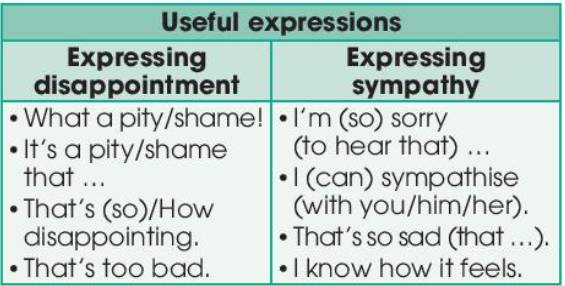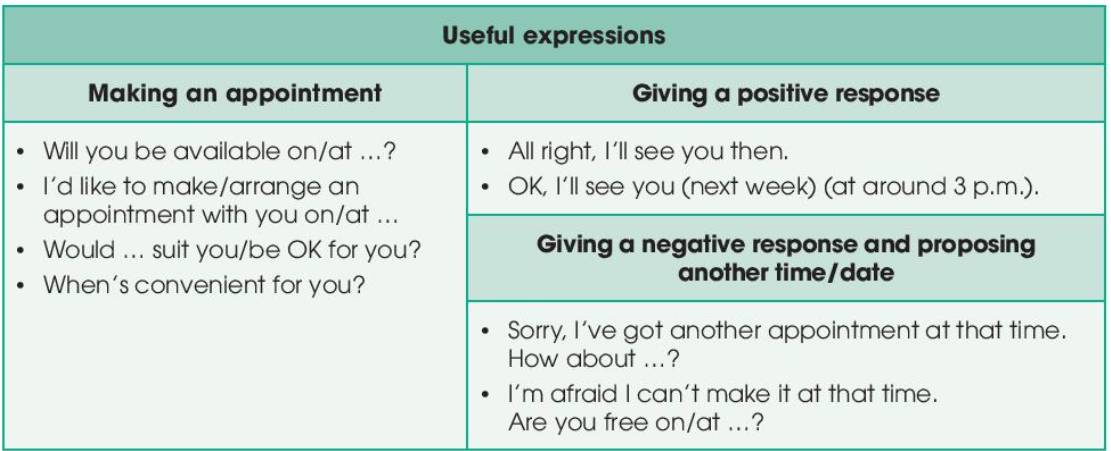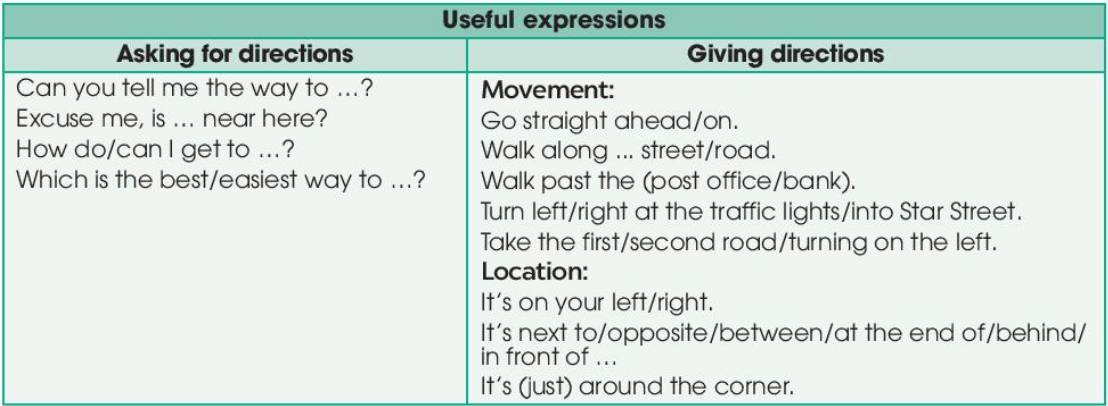Work in pairs. Student A has won a prize in the school’s singing contest / sports competition. Student B congratulates him / her. Make a similar dialogue. Remember to use the highlighted sentences in 1. Then change roles.
Hãy nhập câu hỏi của bạn vào đây, nếu là tài khoản VIP, bạn sẽ được ưu tiên trả lời.


A: You are giving too much water to the flowers. Don’t water them too much!
(Bạn đang cho quá nhiều nước vào hoa. Đừng tưới chúng quá nhiều!)
B: Why?
(Tại sao?)
A: If you give them too much water, they will die.
(Nếu bạn cho chúng quá nhiều nước, chúng sẽ chết.)
B: I see. Thank you.
(Tôi hiểu rồi. Cảm ơn bạn.)

Tham khảo:
A: Hey, have you seen me burning some rubbish here?
(Này, bạn có thấy tôi đốt rác ở đây không?)
B: Yeah, I see that. But do you know that burning waste like that can be dangerous to people's health and the environment?
(Vâng, tôi hiểu rồi. Nhưng bạn có biết rằng việc đốt rác thải như vậy có thể gây nguy hiểm cho sức khỏe con người và môi trường?)
A: Really? How come?
(Thật á? Vì sao?)
B: When you burn waste like that, it releases harmful toxins into the air, which can cause respiratory problems and other health issues. It can also harm the environment and pollute the air and soil.
(Khi bạn đốt chất thải như vậy, nó sẽ giải phóng các chất độc hại vào không khí, có thể gây ra các vấn đề về hô hấp và các vấn đề sức khỏe khác. Nó cũng có thể gây hại cho môi trường và gây ô nhiễm không khí và đất.)
A: Oh, I had no idea. Thanks for letting me know. I'll stop doing it and find a proper way to dispose of my waste.
2.
B: Hey, I'm building a campfire. Do you want to join me?
(Này, tôi đang đốt lửa trại. Bạn có muốn tham gia cùng tôi không?)
A: Sure, but be careful. Starting a fire in a forest can be risky, especially if it's dry and windy.
(Chắc chắn, nhưng hãy cẩn thận. Đốt lửa trong rừng có thể nguy hiểm, đặc biệt nếu thời tiết khô và nhiều gió.)
B: Don't worry, I know what I'm doing.
(Đừng lo lắng, tôi biết tôi đang làm gì.)
A: But even a small spark can start a big forest fire, which can be difficult to control and cause a lot of damage. It's also not safe for our health, as the smoke can cause respiratory problems.
(Nhưng ngay cả một tia lửa nhỏ cũng có thể gây ra một đám cháy rừng lớn, rất khó kiểm soát và gây ra nhiều thiệt hại. Nó cũng không an toàn cho sức khỏe của chúng ta vì khói có thể gây ra các vấn đề về hô hấp.)
B: I see your point. Maybe we should find a safer spot to make a fire or just use a portable stove instead.
(Tôi thấy quan điểm của bạn. Có lẽ chúng ta nên tìm một nơi an toàn hơn để đốt lửa hoặc chỉ sử dụng bếp di động để thay thế.)
A: Yes, that's a better idea. We can enjoy our time outdoors without putting ourselves and the environment at risk.
(Vâng, đó là một ý tưởng tốt hơn. Chúng ta có thể tận hưởng thời gian ở ngoài trời mà không gây nguy hiểm cho bản thân và môi trường.)

1.
A: Hi, I'm a bit nervous about the upcoming exam.
(Xin chào, tôi hơi lo lắng về kỳ thi sắp tới.)
B: Don't worry, you got this! I know you've been studying hard and you're well-prepared. Good luck!
(Đừng lo lắng, bạn đã có cái này! Tôi biết bạn đã học tập chăm chỉ và bạn đã chuẩn bị tốt. Chúc may mắn!)
A: Thank you! I really appreciate your support.
(Cảm ơn bạn! Tôi thực sự đánh giá cao sự hỗ trợ của bạn.)
B: No problem at all. Just do your best and everything will work out.
(Không có vấn đề gì cả. Chỉ cần cố gắng hết sức rồi mọi việc sẽ ổn thôi.)
2.
A: Hey, how are you feeling today?
(Này, hôm nay bạn cảm thấy thế nào?)
B: Not too great, I'm feeling a bit sick.
(Không tốt lắm, tôi cảm thấy hơi ốm.)
A: I'm sorry to hear that. I hope you feel better soon.
(Tôi rất tiếc khi nghe điều đó. Tôi hy vọng bạn sẽ sớm cảm thấy tốt hơn.)
B: Thanks, I appreciate it.
(Cảm ơn, tôi đánh giá cao nó.)
A: Is there anything I can do to help?
(Tôi có thể giúp gì được không?)
B: Just your kind words and good wishes are enough to make me feel better. Thank you.
(Chỉ cần những lời tốt đẹp và lời chúc tốt đẹp của bạn là đủ để làm cho tôi cảm thấy tốt hơn. Cảm ơn.)

Tham khảo:
1.
A: I just submitted my report on ASEAN. I'm hoping to get a good grade on it.
B: Wow, this report is amazing! You did an excellent job on the research and the writing is very clear.
A: Thank you so much for the compliment. I put a lot of effort into it, so it's great to hear that it's appreciated.
2.
B: I recently organized a workshop on skills for future leaders in ASEAN.
A: That sounds really interesting. How did it go?
B: It went really well! I received a lot of positive feedback from the participants.
A: That's great to hear! You did an excellent job with the organization and the content was very informative.
B: Thank you, that means a lot coming from you. I put a lot of time and effort into making sure it was a success.

1.
A: I'm sorry, I can't go on the school trip with you. My little sister is ill and I have to take care of her.
(Em xin lỗi, em không thể đi dã ngoại với bạn. Em gái em bị ốm và em phải chăm sóc em ấy.)
B: Oh no! That's really disappointing. I was looking forward to going with you. Is your sister okay?
(Ồ không! Điều đó thực sự đáng thất vọng. Tôi đã mong được đi với bạn. Em gái của bạn có ổn không?)
A: She has a fever and needs to rest at home. I'm really worried about her.
(Cô ấy bị sốt và cần nghỉ ngơi ở nhà. Tôi thực sự lo lắng cho cô ấy.)
B: I'm sorry to hear that. I hope she gets better soon.
(Tôi rất tiếc khi nghe điều đó. Tôi mong cô ấy sẽ mau khỏe.)
2.
B: I'm sorry, I won't be able to finish the community project on time. I'm too stressed out preparing for my exams.
(Tôi xin lỗi, tôi sẽ không thể hoàn thành dự án cộng đồng đúng hạn. Tôi quá căng thẳng khi chuẩn bị cho kỳ thi của mình.)
A: Oh, that's too bad. I was counting on your help. How are your exams going?
(Ồ, tệ quá. Tôi đã tin tưởng vào sự giúp đỡ của bạn. Làm thế nào là kỳ thi của bạn đi?)
B: They're really tough. I've been studying for hours every day, but I still feel like I'm not ready.
(Họ thực sự khó khăn. Tôi đã học hàng giờ mỗi ngày, nhưng tôi vẫn cảm thấy mình chưa sẵn sàng.)
A: I can sympathize. I know how stressful exams can be. But don't worry, you'll get through it.
(Tôi có thể thông cảm. Tôi biết các kỳ thi căng thẳng như thế nào. Nhưng đừng lo, bạn sẽ vượt qua được thôi.)
B: Thank you for your support, it means a lot.
(Cảm ơn sự hỗ trợ của bạn, nó có ý nghĩa rất lớn.)

[ 1 ] Student A: Hi there, do you need any help with your exercise routine?
Student B: Yes, please. I'm having a hard time with this one.
Student A: Let me help you with that. Here, let me show you the proper form.
Student B: That's very kind/nice of you. Thanks for your help.
Student A: Is there anything else I can do for you?
Student B: No, thank you. I think I'm good now.
[ 2 ] Student A: Excuse me, do you know where the healthy snacks are?
Student B: Yes, they are in aisle 3. Can I help you find anything else?
Student A: Actually, yes. I'm trying to find some low-sugar cereal for my kids.
Student B: Let me show you where it is. Here it is. That’s very kind/nice of you.
Student A: Thank you very much. Is there anything else I can do for you?
Student B: No, thanks. I think I’m fine now.

[ 1 ] Student A: Hi there, do you need any help with your exercise routine?
Student B: Yes, please. I'm having a hard time with this one.
Student A: Let me help you with that. Here, let me show you the proper form.
Student B: That's very kind/nice of you. Thanks for your help.
Student A: Is there anything else I can do for you?
Student B: No, thank you. I think I'm good now.
[ 2 ] Student A: Excuse me, do you know where the healthy snacks are?
Student B: Yes, they are in aisle 3. Can I help you find anything else?
Student A: Actually, yes. I'm trying to find some low-sugar cereal for my kids.
Student B: Let me show you where it is. Here it is. That’s very kind/nice of you.
Student A: Thank you very much. Is there anything else I can do for you?
Student B: No, thanks. I think I’m fine now.
Conversation 1: (Hội thoại 1)
A: Excuse me, could you tell me the way to Ho Chi Minh Mausoleum? I’m lost.
(Xin lỗi, bạn có thể chỉ cho tôi đường đến Lăng Chủ tịch Hồ Chí Minh không? Tôi bị lạc.)
B: Sure. Let me take a look at the map. First, you need to go straight ahead until you reach the intersection, then turn right onto Hung Vuong Street. After that, you continue straight until you see a roundabout, then take the second exit onto Nguyen Thai Hoc Street. Keep walking straight and you'll see it on your left.
(Chắc chắn rồi. Để tôi xem bản đồ. Đầu tiên, bạn cần đi thẳng cho đến khi đến ngã tư thì rẽ phải vào đường Hùng Vương. Sau đó, bạn tiếp tục đi thẳng cho đến khi gặp bùng binh thì đi theo lối ra thứ 2 vào đường Nguyễn Thái Học. Tiếp tục đi thẳng và bạn sẽ thấy nó bên trái của bạn.)
A: Thank you.
(Cảm ơn bạn.)
Conversation 2: (Đối thoại 2)
B: Excuse me, could you tell me the way to Ha Noi Flag Tower? I’m lost.
(Xin lỗi, bạn có thể chỉ cho tôi đường đến Cột cờ Hà Nội không? Tôi bị lạc.)
A: Sure. Let me show you on the map. Go straight ahead until you reach Dien Bien Phu Street, then turn left. Keep walking straight until you see a large intersection, and then turn right onto Phan Dinh Phung Street. Finally, you'll see Ha Noi Flag Tower on your left.
(Chắc chắn rồi. Hãy để tôi chỉ cho bạn trên bản đồ. Đi thẳng cho đến khi bạn đến đường Điện Biên Phủ, sau đó rẽ trái. Tiếp tục đi thẳng cho đến khi bạn nhìn thấy một ngã tư lớn, sau đó rẽ phải vào đường Phan Đình Phùng. Cuối cùng, bạn sẽ thấy Cột cờ Hà Nội ở bên trái của bạn.)
B: Thank you.
(Cảm ơn bạn.)

1.
Student A: Have you heard that they're planning to have driverless buses and flying cars in the future?
Student B: I'm pretty certain about the driverless buses, but I'm not so sure about the flying cars. There are still safety concerns and regulations that need to be addressed before we can make that a reality.
2.
Student B: Have you heard about the latest Al robots? They're supposed to be able to do all the household chores for us in the future.
Student A: I'm a bit uncertain about that. While the technology is advancing, I think there will still be limitations to what the robots can do, especially when it comes to tasks that require human intuition and decision-making.





My: Last week I won the first prize of my school’s singing contest.
(Tuần trước, mình đã giành được giải nhất trong cuộc thi hát của trường.)
Minh:Congratulations!
(Chúc mừng bạn nhé!)
My: Thank you, Minh.
(Cảm ơn Minh.)
Minh: So you're your school’s idol. Anyway, last week I also won the championship of my school’s badminton competition.
(Vậy bạn là thần tượng của trường rồi. À này, tuần trước mình cũng đã giành chức vô địch trong cuộc thi cầu lông của trường đấy.)
My: Congratulations!
(Chúc mừng bạn nha!)
Minh: It’s very kind of you. Thanks, My.
(Bạn rất tốt. Cảm ơn, My.)